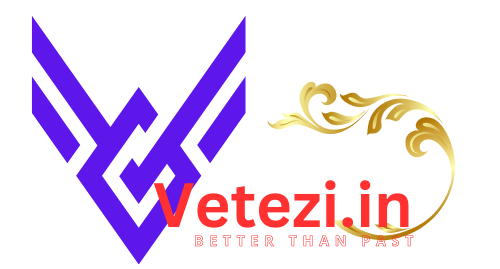In the tapestry of life, our interests serve as vibrant threads, weaving together a rich and fulfilling experience. Embarking on a journey to uncover and nurture our topics of interest is not merely an exercise in self-discovery but a profound investment in our personal and professional growth.
Understanding our passions empowers us to align our actions with our deepest desires, unlocking a world of opportunities and fulfillment. This comprehensive guide will delve into the significance of identifying and exploring topics of interest, providing practical strategies to broaden our horizons and enrich our lives.
General Overview of Topics of Interest

The concept of “topics of interest” refers to subjects or areas of knowledge that an individual finds engaging, informative, or personally relevant. Understanding and identifying these topics is crucial for several reasons:
Firstly, topics of interest can serve as a guide for personal and professional development. By exploring areas that resonate with our interests, we can gain valuable knowledge, skills, and experiences that align with our aspirations and passions.
Significance of Identifying and Understanding Topics of Interest
- Enhanced Learning and Motivation: Engaging with topics of interest fosters intrinsic motivation, making the learning process more enjoyable and effective.
- Personalized Development: Exploring interests allows individuals to tailor their education and career paths to their specific preferences and goals.
- Improved Decision-Making: Understanding personal interests helps individuals make informed choices about their time, resources, and future endeavors.
- Enhanced Well-Being: Pursuing topics of interest can contribute to overall well-being by providing a sense of purpose, satisfaction, and fulfillment.
Methods for Identifying Topics of Interest
Unveiling your personal and professional interests is crucial for personal growth and career success. Various techniques can assist you in this exploration:
Self-Assessment Tools: These questionnaires delve into your values, skills, and preferences. They provide insights into your interests and potential career paths.
Examples of Self-Assessment Tools
- Strong Interest Inventory
- Myers-Briggs Type Indicator (MBTI)
- CareerBuilder Career Profiler
Surveys: Online surveys gather information about your interests, hobbies, and career aspirations. They offer a quick and convenient way to assess your preferences.
Examples of Online Surveys
- CareerExplorer Interest Profiler
- Truity Interest Profiler
- O*NET Interest Profiler
Online Resources: Numerous websites and databases provide information on various topics, industries, and careers. Exploring these resources can spark new interests and help you identify potential career paths.
Examples of Online Resources
- Occupational Outlook Handbook (OOH)
- CareerOneStop
- LinkedIn Learning
Categorization and Organization of Topics of Interest
Organizing and categorizing your topics of interest can help you better manage and retrieve information. There are several approaches you can take:
One approach is to use frameworks. Frameworks provide a structured way to organize your topics, such as by category, topic, or . This can help you quickly find the information you need and see how it relates to other topics.
Another approach is to use mind maps. Mind maps are visual representations of your thoughts and ideas. They can help you connect different topics and see how they relate to each other. This can be a helpful way to brainstorm new ideas and see the big picture.
Finally, you can also use digital tools to help you organize your topics of interest. There are many different tools available, such as note-taking apps, project management software, and research databases. These tools can help you keep track of your research, organize your notes, and collaborate with others.
Frameworks
Frameworks provide a structured way to organize your topics of interest. There are many different frameworks available, so you can choose one that best suits your needs.
Some popular frameworks include:
- The Dewey Decimal System: This system is used to organize books in libraries. It assigns each book a unique number that corresponds to its subject matter.
- The Library of Congress Classification: This system is used to organize books in the Library of Congress. It is similar to the Dewey Decimal System, but it is more detailed.
- The Universal Decimal Classification: This system is used to organize documents in libraries and other institutions. It is similar to the Dewey Decimal System and the Library of Congress Classification, but it is more comprehensive.
You can also create your own framework. This can be a helpful way to organize your topics of interest in a way that makes sense to you.
Mind Maps
Mind maps are visual representations of your thoughts and ideas. They can help you connect different topics and see how they relate to each other.
To create a mind map, start by writing down your main topic in the center of a piece of paper.
- Then, draw branches off of the main topic and write down related topics on the branches.
- You can continue to add branches and topics until you have a complete mind map.
Mind maps can be a helpful way to brainstorm new ideas and see the big picture.
Digital Tools
There are many different digital tools available to help you organize your topics of interest.
- Note-taking apps: Note-taking apps can help you keep track of your research and organize your notes.
- Project management software: Project management software can help you manage your research projects and collaborate with others.
- Research databases: Research databases can help you find and access research articles and other resources.
The best digital tool for you will depend on your needs and preferences.
Strategies for Exploring and Expanding Topics of Interest

Expanding your knowledge and interests can be a fulfilling and enriching experience. Here are some strategies to help you broaden and deepen your understanding of your areas of interest:
Attend Workshops and Events
Workshops and events offer an excellent opportunity to learn from experts, connect with like-minded individuals, and gain hands-on experience. Look for events related to your interests and actively participate in discussions, ask questions, and engage with other attendees.
Join Communities and Online Forums
Joining communities and online forums dedicated to your interests can provide a wealth of information, support, and inspiration. Participate in discussions, share your insights, and connect with others who share your passions. These communities can also offer opportunities for collaboration and mentorship.
Pursue Further Education
Formal education, such as taking courses or enrolling in degree programs, can provide a structured and in-depth exploration of your interests. Consider taking courses at local colleges or universities, or explore online learning platforms that offer specialized programs.
Applications of Understanding Topics of Interest
Identifying and understanding our topics of interest is a crucial aspect of personal and professional development. It helps us focus our energies, enhance our skills, and lead a more fulfilling life.
Understanding our topics of interest can have profound implications for our career development. It enables us to:
Career Development
- Identify career paths that align with our interests and passions.
- Make informed decisions about educational pursuits and professional certifications.
- Network with individuals who share similar interests, fostering valuable connections.
li>Develop a strong personal brand and showcase our expertise in areas that we are passionate about.
Personal Growth
Understanding our topics of interest also contributes to our personal growth by:
- Expanding our knowledge and skills in areas that we enjoy.
- Enhancing our creativity and problem-solving abilities.
- Fostering a sense of purpose and fulfillment in our lives.
Overall Well-being
Moreover, understanding our topics of interest can positively impact our overall well-being by:
- Reducing stress and anxiety by engaging in activities that we enjoy.
- Promoting a sense of accomplishment and self-esteem.
- Enhancing our social connections and relationships.
Final Thoughts
As we conclude our exploration of topics of interest, it becomes evident that they are not merely fleeting curiosities but rather the guiding stars that illuminate our path to a life filled with purpose and passion. By embracing our interests, we unlock a wellspring of knowledge, creativity, and personal growth that enriches every aspect of our existence.
FAQ Section
What are the benefits of identifying and understanding my topics of interest?
Identifying and understanding your topics of interest provides numerous benefits, including enhanced career development, personal growth, and overall well-being. It allows you to pursue fulfilling career paths, engage in meaningful hobbies, and foster a sense of purpose and fulfillment in your life.
How can I identify my topics of interest?
There are several effective techniques for identifying your topics of interest. Self-assessment tools, surveys, and online resources can provide insights into your passions and preferences. Additionally, reflecting on past experiences, hobbies, and activities that have brought you joy and fulfillment can help you uncover your true interests.
What are some strategies for exploring and expanding my topics of interest?
To broaden and deepen your knowledge within areas of interest, consider attending workshops, joining communities, or pursuing further education. Engaging with like-minded individuals, participating in discussions, and immersing yourself in relevant materials can significantly enhance your understanding and expertise.




